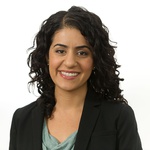What to Expect at Wednesday’s Benghazi Hearing
Three self-described whistleblowers plan to contradict White House accounts.
The Obama Administration's handling of the Sept. 11, 2012 attack on the U.S. consulate in Benghazi, which left ambassador Christopher Stevens and three other Americans dead, will come into focus on Wednesday during a House Oversight Committee hearing.
Testimony by three self-described whistleblowers could contradict portions of the narrative of the attacks and drag former Secretary of State Hillary Clinton back into the spotlight for her involvement in the crisis. Committee Chairman Darrell Issa revealed portions of the testimony Sunday on CBS’ Face The Nation.
Gregory Hicks was the deputy chief of mission at U.S. Embassy in Libya and in Tripoli during the attacks. Hicks’ testimony is expected to contradict what top officials were publicly saying in the initial days following the incidents: that it was a spontaneous attack sparked by protests rather than act of calculated terrorism. Hicks told investigators that "I think everybody in the mission thought it was a terrorist attack from the beginning," according to a transcript obtained by CBS News.
Initially, U.S. Ambassador to the United Nations Susan Rice publicly disputed the notion that the attack was an act of planned terrorism. Hicks is expected to testify that he wasn’t consulted about such official talking points, telling investigators that he had “never been as embarrassed” as when he heard Rice contradict how the Libyan president had described what transpired.
Hicks will also testify that a team of special forces was ready to travel from Tripoli to Benghazi on the night of the attacks, but were prevented from doing so by the United States Africa Command, CBS News reports. Administration officials have maintained that military forces, which were in Italy, couldn’t have made it in time.
Mark Thompson is the deputy coordinator for operations in the State Department’s counterterrorism bureau. He’s expected to testify that Clinton cut the agency’s counterterrorism bureau out from the decision-making process on the night of the attacks, according to FOX News. Thompson considers his testimony as having been suppressed in the official investigation into the attacks -- the Accountability Review Board headed by longtime-diplomat Thomas Pickering and former Joint Chiefs of Chairman Admiral Mike Mullen.
Thompson’s charges were denied by State Department spokeswoman Jen Psaki. And Daniel Benjamin, who ran the State Department’s counterterrorism bureau's Foreign Emergency Support Team at the time of the Benghazi attacks said in a statement that “I can say now with certainty, as the former Coordinator for Counterterrorism, that this charge is simply untrue.” White House Press Secretary Jay Carney referred to Benjamin’s statement when asked Monday about Thompson’s accusation.
The ARB report, the result of a review ordered by Clinton, detailed "systemic failures and leadership and management deficiencies" at the State Department. One official resigned after the report’s release, and three others were placed on leave and relieved of their duties. Republican lawmakers have criticized the review for not having interviewed Clinton and argued the process was designed to shield Clinton from scrutiny.
Carney referred to the ARB report when asked about Hicks' accusations. “It was unsparing. It was critical,” Carney said. “And it held people accountable and it made a series of recommendations for action that could be taken to improve security to reduce the potential for these kinds of events from happening in the future.”
The ARB process is now under review itself. The State Department’s inspector general is conducting a special review into the “effectiveness and accountability” of the ARB process. But State Department officials maintain that the special review will not just focus on the Benghazi ARB, nor was it spurred by Benghazi.
When asked if this week’s hearing and ongoing investigation was “merely political,” State Department spokesman Patrick Ventrell said “It certainly seems so so far,” telling reporters during a briefing Monday that “this is not sort of a collaborative process where these -- the committee is working directly with us and trying to establish facts that would help as we look to keep our people safe overseas in a very complex environment.”
Ventrell also said he couldn’t comment on what’s been reported on the expected testimony of the witnesses because the State Department hasn’t been provided the full transcripts. “Now we understand this testimony's going to go forward, and we want people to go and tell the truth,” Ventrell said. “But in terms of the full context of these remarks or these sort of accusations, we don't have the full context, so it's hard for us to respond.”







